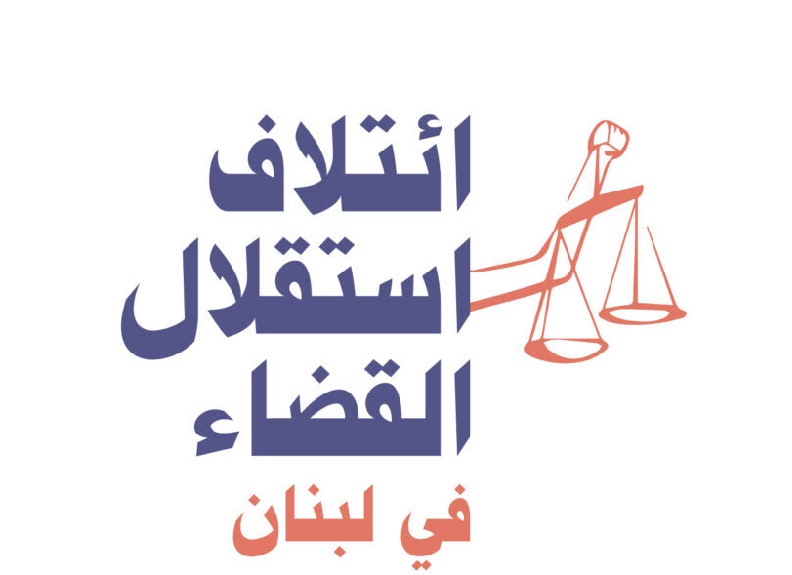Independence of the Judiciary Coalition Statement on the Suppression of Lawyers’ Freedoms: The Wall of Impunity Fears Expression

On 3 March 2023, the council of the Beirut Bar Association issued a decision to amend lawyers’ binding code of ethics in a manner that subjects their freedom to express themselves by any means to prior censorship by the association’s president. The amendment stipulates that a lawyer may only participate in a conference or interview of a legal nature held by a media outlet, social media outfit, website, or “group” after obtaining the president’s permission. In other words, lawyers’ freedom is contingent on this permission, and they lose it completely if the permission is withheld.
The council then stressed that lawyers must seek the Bar Association president’s permission before discussing major court cases, and discussing cases not considered major is prohibited. The decision included no definition grounded in legal theory of the vague terms it used or controls to prevent the president from abusing his new power. Rather, the council went as far as to completely ban the publication of investigations or pending case files. Bar Association President Nader Gaspard justified the council’s decision on the basis of the “anarchy” prevailing and the criticisms that lawyers direct at their association.
In response to these decisions, the Independence of the Judiciary Coalition (IJC) would like to state the following:
A Clear Encroachment on the Essence of Lawyers’ Freedom of Expression
The council’s decisions violate lawyers’ freedom of expression by turning it from a freedom inherent to each and every one of them and guaranteed by the Constitution into a freedom that is granted via permission and subject to prior censorship in contravention of the Constitution and Article 19 of the Universal Declaration of Human Rights. Making matters worse, this censorship is discretionary as the council established no mechanisms, criteria, or time frames but instead left the Bar Association president the absolute power to set its conditions in the absence of any real judicial oversight. These decisions turn this freedom into a privilege for lawyers in good graces and grant the president a weapon to silence lawyers who express opinions that he wishes to block or does not care to disseminate, including any criticism of him or the association. In other words, lawyers’ freedom in its entirety becomes contingent on the president-censor’s likes and dislikes and – most gravely – on any force that manages to exert influence over him, all without any justification. The decisions thereby undermine the essence of the freedom under the guise of regulating it, which makes them illegal, unconstitutional, and unjustified, in addition to violating the principles of proportionality and necessity.
An Attack on Lawyers’ Independence and Role
Besides infringing on lawyers’ constitutionally and internationally guaranteed freedom, the decision also infringes on their independence in their defense of their clients, which – following 17 October and more than ever before – now requires appealing to public opinion in many extremely important cases, such as those concerning the port blast, banks, money laundering, and illicit enrichment, in response to the momentous interference in judicial work and relentless efforts to obstruct it. Hence, the council’s decisions allow impunity practices to be protected by silencing lawyers and depriving them of legitimate and democratic means – and in some cases the only means left – to perform their sacred task of defending their clients. Moreover, any restriction of lawyers’ freedom of expression is tantamount to withholding information from the public, which is another violation of the Universal Declaration of Human Rights. The Bar Association president’s new power is also expected to open the door for all influential parties disgruntled by any given lawyer to pressure him to intervene and silence the lawyer or else be held responsible for anything said or not said.
Curbing Anarchy or Curbing Tools of Resistance and Change?
The Bar Association council’s justification that an end must be put to “anarchy” is an argument that has become constantly used to force judicial authorities to intervene to stop judges who dare impinge on the prevailing regime or its immunities, as well as to justify executive branch intervention to block the implementation of judicial decisions. This concept was the trojan horse for the cassation public prosecutor’s coup against Judicial Council Investigator Tarek Bitar’s efforts to put the port investigation back on track after it was frozen for a year and one month, as well as for Caretaker Prime Minister Najib Mikati’s coup against the separation of powers during the first judicial effort to lift banking secrecy. “Anarchy” has become an accusation attached to anyone who dares breach the prevailing system of impunity, with all its grotesqueness, hubris, and obstacles. And now the Bar Association council is using it to execute a coup against the role that active groups of lawyers are playing in the defense of what remains of law and public order. There is no better evidence than the council’s haste to introduce these crude and extreme amendments without having previously taken any measure or made any attempt to stop the supposed anarchy, as if anarchy can be addressed not by dealing with specific lawyers’ infractions but only by controlling the freedoms of all lawyers.
Hence, while supporting any effort to challenge the 3 March 2023 decisions, the IJC calls upon the Bar Association’s council to immediately repeal them and work to amend professional ethics in a manner that activates their role in breaching the wall of impunity and restoring public order. We also warn of the consequences of bringing proceedings against any lawyers for contravening any of these intrinsically illegal decisions or exercising their legitimate right to criticize the Bar Association’s council or president.



